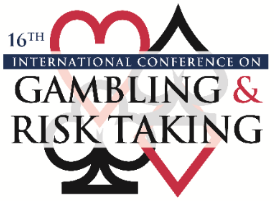Money Laundering through Gambling Devices – Big Business in Australia and the U.S.A?
Session Title
Session 4-1-F: Emerging Legal Issues in Gaming
Presentation Type
Event
Location
The Mirage Hotel & Casino, Las Vegas, Nevada
Start Date
10-6-2016 8:30 AM
End Date
10-6-2016 10:00 AM
Disciplines
Business | Economics | Gaming and Casino Operations Management | International Business
Abstract
Vice and crime invariably go together like ‘a horse and carriage’. Attempts to launder money gained through criminal means in an attempt to make the money appear ‘legitimate’, is nothing new. It appears however that the enactment of regulations to address money laundering through various legal gambling activities, is a more recent phenomenon (according to Noble and Golumbic (1997) money laundering was not recognised by any jurisdiction as a separate criminal offence until 1985). Five years ago a New South Wales (NSW) media article highlighted the extent of money laundering through gambling activities in Australia, demonstrating that it is indeed, ‘big business’:
Industry sources estimate that nationally $2 billion a year is laundered through hotel, club and casino poker machines and gambling chips…This is a large slice of the $14 billion fed through the nation's poker machines each year. As much as 40 per cent of this is laundered in NSW……The amount fed into machines by criminals far exceeds that spent by problem gamblers with psychological addictions to playing pokies (Carson 2010a)
Recent money laundering occurred when approximately $AUS 5 million profit from the sale of cocaine was put through the only legal casino in Sydney – The Star. This involved a syndicate of citizens from Australia and from the U.S.A. (McClymont and Ralston 2015). The NSW Consolidated Crimes Act 1990 (Section 193B) includes incarceration for 10, 15 or 20 years for money laundering (http://www.austlii.edu.au/au/legis/nsw/consol_act/ca190082/s193b.html). Recent legislation specifically for money laundering through electronic gaming machines (EGMs) for Registered Clubs and licensed hotels (pubs) in NSW is the ‘Anti-Money Laundering and Counter-Terrorism Financing Act 2006 (AML/CTF Act) and the Anti-Money Laundering and Counter-Terrorism Financing Rules (AML/CTF Rules) (Australian Government 2013). AUSTRAC monitors all payouts from EGMS and “the cashing of transferred cheques” over $AUS1,000 (Parliament of Australia p. 51).
It would appear that many clubs and pubs are reticent about reporting money laundering, fearing that any disclosure to authorities would be bad for their reputation and their bottom line (see for example Carson 2010b). Consequently it is argued in this paper that the tenets of corporate social responsibility (CSR), including a strong focus on ethics, is vitally important in the EGM industry in helping to wipe out money laundering, which is used to make ‘dirty’ money ‘clean’ and in some instances, used to fund terrorism.
Keywords
Gambling, EGMs, Money Laundering, Corporate Social Responsibility, Ethics
Streaming Media
Money Laundering through Gambling Devices – Big Business in Australia and the U.S.A?
The Mirage Hotel & Casino, Las Vegas, Nevada
Vice and crime invariably go together like ‘a horse and carriage’. Attempts to launder money gained through criminal means in an attempt to make the money appear ‘legitimate’, is nothing new. It appears however that the enactment of regulations to address money laundering through various legal gambling activities, is a more recent phenomenon (according to Noble and Golumbic (1997) money laundering was not recognised by any jurisdiction as a separate criminal offence until 1985). Five years ago a New South Wales (NSW) media article highlighted the extent of money laundering through gambling activities in Australia, demonstrating that it is indeed, ‘big business’:
Industry sources estimate that nationally $2 billion a year is laundered through hotel, club and casino poker machines and gambling chips…This is a large slice of the $14 billion fed through the nation's poker machines each year. As much as 40 per cent of this is laundered in NSW……The amount fed into machines by criminals far exceeds that spent by problem gamblers with psychological addictions to playing pokies (Carson 2010a)
Recent money laundering occurred when approximately $AUS 5 million profit from the sale of cocaine was put through the only legal casino in Sydney – The Star. This involved a syndicate of citizens from Australia and from the U.S.A. (McClymont and Ralston 2015). The NSW Consolidated Crimes Act 1990 (Section 193B) includes incarceration for 10, 15 or 20 years for money laundering (http://www.austlii.edu.au/au/legis/nsw/consol_act/ca190082/s193b.html). Recent legislation specifically for money laundering through electronic gaming machines (EGMs) for Registered Clubs and licensed hotels (pubs) in NSW is the ‘Anti-Money Laundering and Counter-Terrorism Financing Act 2006 (AML/CTF Act) and the Anti-Money Laundering and Counter-Terrorism Financing Rules (AML/CTF Rules) (Australian Government 2013). AUSTRAC monitors all payouts from EGMS and “the cashing of transferred cheques” over $AUS1,000 (Parliament of Australia p. 51).
It would appear that many clubs and pubs are reticent about reporting money laundering, fearing that any disclosure to authorities would be bad for their reputation and their bottom line (see for example Carson 2010b). Consequently it is argued in this paper that the tenets of corporate social responsibility (CSR), including a strong focus on ethics, is vitally important in the EGM industry in helping to wipe out money laundering, which is used to make ‘dirty’ money ‘clean’ and in some instances, used to fund terrorism.


Comments
Audio recording of this presentation is attached as a downloadable MP3 audio file, 39.1 MB
This presentation begins at 21:04